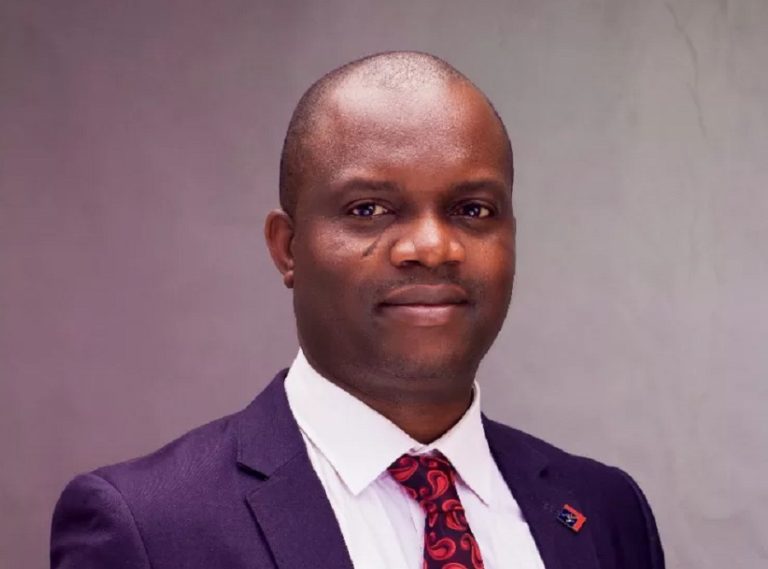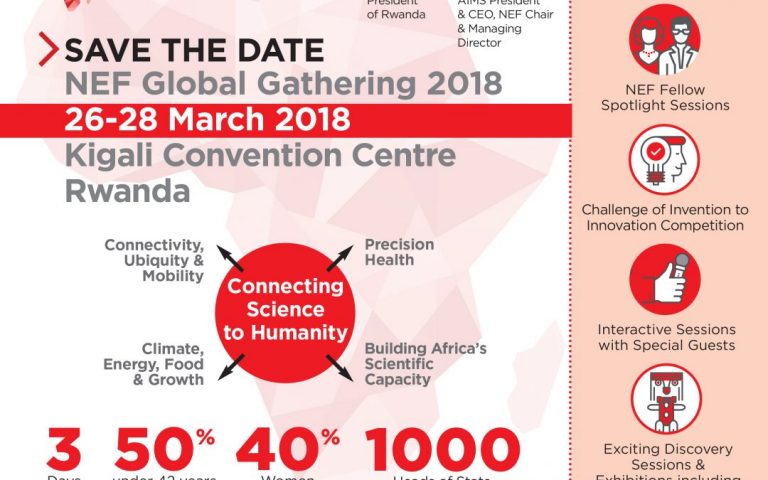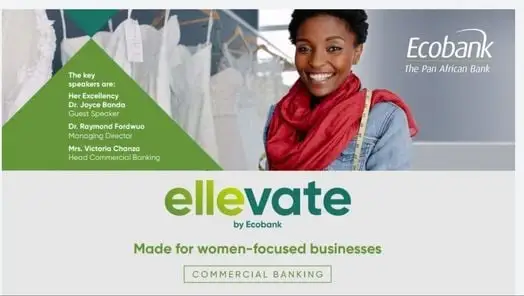Start-Up Nigeria: Opportunities, Challenges and the Future
This article was first published on the Seed Stars World Blog
The story of Nigeria’s economic revolution is gradually unfolding as Nigeria recently becomes the largest economy in Africa and the 24th biggest economy in the world. It is very surprising and in fact unique to see a lot of foreign investors coming into Nigeria despite the daunting challenges the country is facing even at this time. With several challenges in corruption, infrastructural deficiency, insecurity especially in the northern Nigeria, there is so much to be desired and talked about in Nigeria than these problems. A growing army of young technopreneurs (Technology focused Entrepreneurs) is emerging-the Start-Up Nigeria.
We are a country of about 170 million people with a greater number of the population being vibrate youths with median age of 19.This leads to a great consumer-driven market, the largest oil producing nation in Africa, the largest mobile market in Africa with over 125 million mobile subscribers and a penetration rate of 75% early 2014. An economy of about $510b and growth rate of more than 8 percent, an interesting capital market as seen by a recent data released by the Nigerian Stock Exchange which shows that international investors bought about $789 million of Nigerian stocks in the first 3 months of the year. These are pointers of great and positive economic growth in Nigeria.
Of interest is that for the first time in our economic growth, sectors like the Telecommunications, ecommerce, Agriculture, Information Technology and Entertainment have shown positive growth within few years. This shows that Nigeria can also have an alternative source of economic growth than her over dependence in oil.
The contribution of the technology industry in Nigeria is becoming significant. It becomes obvious that the backbone of leading economies in the world today is hinged on technology and entrepreneurship. We see Technology powering every facet of human endeavor, enabling effective governance, empowering security, driving economic and social changes. No nation especially the developing countries can afford to neglect the importance of technology if they want to be relevant. This is the new economy driven by knowledge based on technology and innovation. This new potential of economic and sustainable growth is one that can take us from the unemployment situation we find today to global relevance and competitiveness.
If going by the projections from Gartner few months ago, Information Technology spending will nearly hit $4 trillion threshold and then Software spending will be $158 billion in 2016.The positive economic indexes coming from Nigeria as an emerging market shows we are certainly a centre of global attraction and investors haven.
Just as a report released from the research done by Omidyar Network on Accelerating Entrepreneurship in Africa, shows that despite the challenges entrepreneurs in Nigeria face like lack of access to capital and funding, infrastructural and power deficiencies etc., there is a positive and strong entrepreneurial culture in Nigeria driven by the young population and also the return on investment in Nigeria is higher than most African countries. This shows that many young Nigerians are eager to become entrepreneurs if given the needed support in an enabling environment!
The story is just beginning with the passion, hunger and drive I see in many young Nigerians who are driving what is called the Start-up Nigeria Ecosystem-A generation of code warriors, business experts, idea specialists, Bloggers, change agents, strategists, geeks, innovation experts and drivers of technnovation in Nigeria. This is a new story that has been getting international attentions, a story of a growing Africa Tech Hub in Nigeria.
Key Drivers of Change in the Nigeria Start-up Ecosystem
Visiting Nigeria for the first time and landing in Lagos-the commercial nerve centre of Nigeria, you will be welcomed by this vibrate city with over 20 million people, a city that has been compared to New York, Cairo and New Delhi. You have the Lagos Island and the Lagos Mainland separated by one of the longest bridges in the world called the 3rd mainland bridge. The city is also dotted with clusters of suburbs.
When you talk about Start-Ups in Nigeria, a major area that is consciously becoming a tech cluster is the Yaba area of Lagos. This is where you will find most start-ups in Nigeria and a growing Startup Ecosystem is emerging with the support of Lagos state government, private companies like MainOne, International organizations and good spirited individuals like Tomi Davies, who are driving these changes to grow a structured ecosystem for technology entrepreneurship.
Yaba is gradually attracting an increased broadband and internet infrastructure powered by MainOne, co- location of tech hubs, home to two academic institutions: the University of Lagos and the Yaba College of Technology, there is also research and creative centres around the area. This days Yaba is often referred to by many as the Silicon Valley of Africa, but that doesn’t make much impact. The truth is the passion, hunger, enthusiasm I see in the eyes of young software developers in Nigeria as they gather together at the Cchub to help grow their startups, is of significant interest.
Thanks to Bosun Tijani and Femi Longe, two young Nigerians that started the first Technology Hub in Nigeria-the Co-Creation Hub (CcHub). The CcHub is at the centre of tech innovation amongst young people in Nigeria. It is Nigeria’s first open living lab and pre-incubation space designed to be a multi-functional, multi-purpose space where work to catalyze creative social tech ventures take place. It is a place for technologists, social entrepreneurs, government, tech companies, impact investors and hackers in and around Lagos come together to co-create new solutions to the many social problems in Nigeria. The project was largely funded by the Omidyar Network and the Indigo Trust among other organizations that has continuously supported their existence since 2010. CcHub is living up to expectations and am happy about what they are doing in the space.
Within a period of 4 years other hubs have sprang up within and around the Yaba axis. Some of them include the IDEA Hub established by the federal government of Nigeria to support software incubation in Nigeria, The TVClabs driven by Tomi Davies, Wennovation Hub, Passion Incubator co-founded by Olufunbi Falayi and the newly started Leadpath Accelerator. Others are the L5lab by serial entrepreneur Chika Nwobi,Spark.ng co-founded by Jason Njoku, Lagos Angel Network, Mobile Monday, Venia Business Hub, Paradigm Initiative of Nigeria(PIN) founded by Gbenga Sesan ,Capital Square, Rocket Internet Incubator, the proposed Silicon Village, Techlaunchpad, and the Tinapa Knowledge city in Calabar, Cross river state. These are all efforts/ideas /hubs by several individuals, organisations focused at helping, supporting and growing the Nigerian Startup Ecosystem.
Success Stories
From my standpoint, owing to where we are coming from in a space of few years, some success stories can be seen among the Nigerian Startup ecosystem and you can find them in the hubs that I mentioned above. Though one has not really measured their successes in terms of their profitability, share capital and all of that parameters, but the positive report from them is fueling the interest of investors into the Nigerian tech ecosystem and that is good.
Startups like Iroko partners and Jobberman have got funding and are expanding their operations and providing employment for Nigerian Youths. The interesting start-up development going on under the spark.ng is one I find very interesting in the ecosystem. Internet Start-ups like Konga, Jumia, Kaymu, Olx,Dealdey are actually opening and pushing the frontiers of ecommerce in Nigeria. NairaBet,Paga, Tranzit, kuluya games,Maliyo games, prowork, Afritickets, Tiketmobile,Nearest locator are a few of the startups to watch.
There has also been on the increase awareness in social entrepreneurship where technology is used as a tool to drive social causes. These area has also created interesting startups like the Enough is Enough Nigeria, Iwatch Nigeria, iPolice, iconnect, BudgIT,PolicyNG, Wecyclers, Flying Doctors,Efiko, HealthMobile, Open Government, Nigerian Constitution for All, and many others.
Challenges
The Startup Ecosystem in Nigeria is a vibrate one no doubt, it is unstructured with huge challenges like any other. These challenges can be termed external and internal. Start-up founders in Nigeria go through external factors like huge infrastructural deficiency in Nigeria; High cost of Internet, computers and other tools to work with; Lack of funds and investment friendly environment; Great knowledge and skill gap; a big gap between the government and the Startup industry. We are yet to witness government’s full support and that is a major challenge here.
One can easily notice that aside these external factors ,the one thing I find more worrisome for the ecosystem is lack of the spirit of innovation, collaboration and openness to opportunities in other parts of the world. The right attitude is actually needed to build the ecosystem, which is missing.
Systems of these nature elsewhere thrive on a culture of collaboration within the country and with like minds outside the country. You easily find startup founders in Nigeria wanting to do and be all by themselves just to answer a startup founder when they lack the business acumen required to develop their start-ups into a profitable business. Finding the right people and team to work with is always a major challenge in the system.
There is also this disconnect between what I call the tri-angle of innovation which is the academia, the government and the technology industry in Nigeria with the Start-Ups. This disconnection has hindered the contribution of the academics towards startup development in Nigeria. The startup ecosystem is yet to find its way into the actual technology industry in Nigeria. Over the last four years efforts are being made through several conferences and fora like EduNet, Barcamp, ISPON Conference, Mobile Web West Africa etc. to bring the government, the academics, the Start-Ups and the Nigeria Tech industry together to share ideas, skills and collaborate.
What the Future Holds for Start-Ups in Nigeria
I personally believe that in few years to come some of these challenges I mentioned would have been tackled if the Nigerian government show more support to the industry. There is great potentials in investing and supporting the startup ecosystem in Nigeria at this time seeing the economic outlook of Nigeria. We have seen several companies like Nokia, MTN, Tecno, Samsung, BlackBerry, Qualcomm, Google, Microsoft, Africa Internet Holding, Tony Elumelu Foundation, Stanbic IBTC etc. supporting and exploring the ecosystem. The system before the end of 2016 will witness massive investment. There are huge opportunities yet to be tapped around Education, Ecommerce, Health, and also Telecommunications. There is great need to develop startups that create products for the large consumer market in Nigeria. As the use of mobile phones continuously grow, it also provide huge opportunities for Nigerian Startups around mobiles.And as the Seed Stars World event holds in Lagos this week, selected Start-Ups from Nigeria will have another opportunity to be part of a Global Start-Up Competition with international relevance. This is the future and the time is now!








